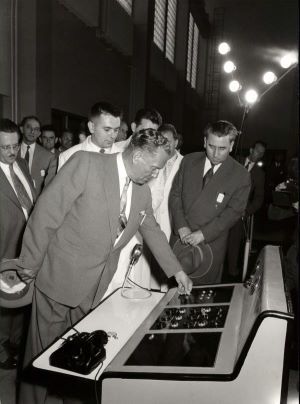We are happy to announce the next presentation of the Visegrad Scholarship at OSA. Join the event online following the link below!
The presentation will be held at 11:00 AM on Monday, July 17, 2023, online. The Zoom link of the meeting is: https://ceu-edu.zoom.us/j/94644808528?pwd=dnpzUFNFckRsMTVyaDhIQUlOZU5JQT09
Dr. Marko Miljković, Research Associate of the Institute of Economic Sciences in Belgrade (Serbia)
The Yugoslav Energy Wars: How the Development of Energy Strategy Contributed to the Collapse of Yugoslavia
This presentation focuses on the “Yugoslav Energy Wars” as a specific battlefield between regional political elites upon which the future of the Yugoslav Federation was decided. The aim of the presentation is to provide a perspective that could potentially change our understanding of the Yugoslav conflict and the history of Yugoslavia in general. One of its key findings is that the process of the country’s disintegration was already far advanced by the early 1970s.
Throughout the 1970s and 1980s, energy strategy was a hotly debated topic in Yugoslavia, revolving around long-term plans for the energy infrastructure construction. This grand strategy was supposed to guarantee the country’s energy security and independence for decades to come, but it turned into a fight for federal funding among regional political elites whose visions ended at the border of their own republics. The tensions were further heightened by the ongoing process of the country’s federalization, the global energy crisis of the 1970s, and the Yugoslav debt crisis of the 1980s. In such an environment, the “nuclear lobby” (Slovenia and Croatia) and the “coal lobby” (Serbia) emerged as economic and political pressure groups, supported by already deeply antagonized political elites. The victory of the Serbian-led “coal lobby” by the end of the 1980s deeply undermined the country’s federal unity, eventually leading to the Wars of Yugoslav Succession.
On a broader level, the conflict between regional political elites about the Yugoslav energy strategy reflected the existing Cold War divisions, with Slovenia and Croatia leaning toward cooperation with the West, while Serbia gradually becoming dependent on the support of the Soviet Union. These energy divisions are significant not only for a deeper understanding of the Yugoslavia’s political position in the Cold War, but also for the position of contemporary Serbia and its political elites in relation to Russia and the war in Ukraine.

